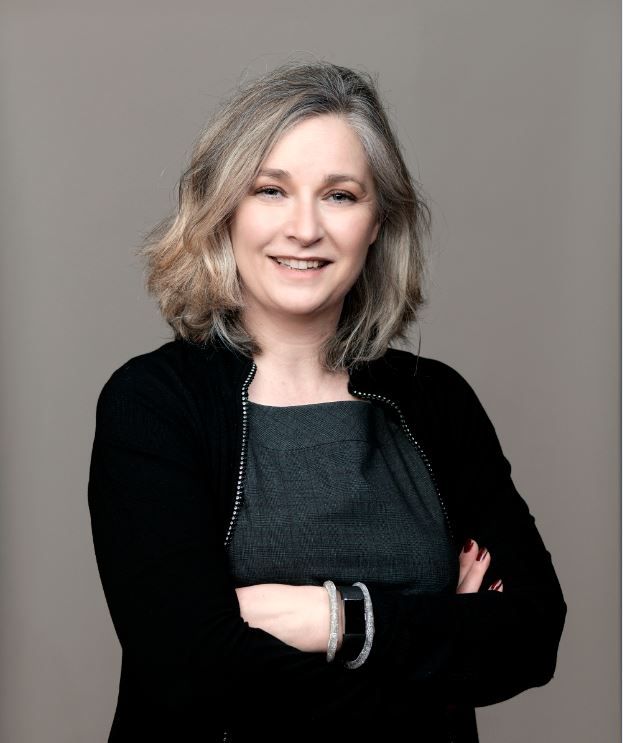
Artificial intelligence: from it is origins to the emergence of generative AI
Artificial intelligence (AI) has captivated scientists and engineers for decades, and more recently everyone, since ChatGPT burst on the scene in December 2022.

Sabine Lepaisant
Head of Data and AI at Societe Generale Private Banking France
What do we mean by AI?
Artificial intelligence refers to the ability of machines to perform tasks that require human-level intelligence such as problem-solving, shape recognition, learning and decision-making. Humankind has always sought to reduce its workload using tools and machines to perform what are often tedious tasks. AI takes this to the next level, striving to create systems capable of reasoning, learning and interacting autonomously, as humans do. But not without a few technical questions... and ethical considerations.
The very beginning
AI dates back to the 1950s when pioneers such as Alan Turing and John McCarthy began to explore the idea of creating intelligent machines. It was in 1956, at a conference at Dartmouth College, that the term “artificial intelligence” was officially used, heralding a new and distinct area of research. In the decades that followed, AI oscillated through periods of significant progress and stagnation.
In the 1960s, these nascent systems became more sophisticated with the development of robotics and the first natural language processing (NLP) systems that attempted to translate Russian texts into English.
Between 1980 and 1990, AI advanced in areas such as automatic learning, computer vision (facial recognition and object detection), and language processing. This period also marked a pause in discoveries and breakthroughs — a “winter of AI” — during which researchers channelled their efforts into consolidating the foundations for future progress.
From the 2010s, the emergence of more sophisticated algorithms and increasingly powerful computing systems opened up new possibilities. AI began to move beyond the purely industrial arena of robotics to make its mark via practical applications in fields as diverse as medicine, finance, and the automotive industry, with the development of the first dialogue systems or “conversational agents” known as “chatbots”.
The most powerful of these, Chat GPT, made its entry in 2020 and has proved a step change in the language application of AI in particular. AI had long been considered the domain of experts and large corporations. ChatGPT shattered this perception, requiring neither complex installation nor programming skills. Suddenly, AI became the domain of everyone, by simply entering a question in spoken language to obtain a relevant response.
There’s AI, and then there are AIs...
AI is based on a set of techniques and fundamental concepts:
Machine learning whereby machines learn from data to improve their performance autonomously without programming.
Neural networks — computer models made up of interconnected algorithms — used to process various complex tasks.
“Traditional” AI models for machine learning excel at analysing, recognising and generalising existing models. A good example of the use of machine learning is the self-driving car. Its onboard sensors send thousands of pieces of data to the car’s computer, which in turn makes thousands of decisions per second — when to brake, turn, indicate, etc. — based on mathematical probabilities and observations.
...and the new kid on the block: Generative AI
Generative AI (or Large Language Model) techniques, on the other hand, are based on artificial neural networks, or deep learning models, and focus on the creation of new content, such as images, text, sound or even video, rather than analysing or classifying existing data. It is designed to independently generate realistic and plausible data that resemble the data the AI has been trained to mimic, making the output appear authentic to a human observer.
Based on statistical and probabilistic machine learning models, Generative AI is a huge leap forward in the logical development of AI. This is thanks to recent technological advances in high-performance computing and specialised hardware, like GPUs1, which have dramatically accelerated the speed of the calculations needed to train models. The explosion of data available on the internet has provided Generative AI algorithms with a tremendous data pool, making their results even more compelling. While ChatGPT is not “conscious”, it has learned to speak and write like a human, and render information from data inputs from the internet and businesses.
By autonomously generating new content — images, music, text and even video — with seemingly boundless creativity, Generative AI opens up endless possibilities for the entertainment and advertising industries, not to mention the arts. Its ability to “understand” and generate content based on individual preferences makes for far more personalised customer relations and improves the customer experience.
It provides an entirely seamless interaction between humans and machines, and fundamentally transforms the way we interact with the digital world.
Who uses Generative AI and what for?
For businesses, Generative AI can save time and resources in their production processes, and can encourage innovation. Because it is often used to automate repetitive and rule-based tasks, it is already having an impact on the labour market by changing existing jobs or creating new ones, just as past innovations have done. Its multiple applications cover:
Manufacturing, logistics and services, by automating tasks such as assembly, packaging and customer service.
Healthcare, with doctors using AI to analyse complex medical data to make more informed clinical decisions, and to receive guidance during operations.
Pharmacology, for the discovery of new treatments and medicines.
The environment, by helping to find new materials or energy sources
Education, to interact with students and adapt and personalise learning methods.
Etc.
In banking, a multitude of Generative AI applications have been identified. These are transforming financial services by improving customer service response time, generating relevant reports and documents, and personalising online interactions, transforming the banking sector. It also automates fraud-prevention mechanisms, making transactions both safer and more efficient. Portfolio managers are able to crunch vast quantities of data in record time and respond to investment opportunities much faster. AI can also be used to monitor portfolios and detect unusual market events, while helping to better manage risk by identifying early warning signs and proposing mitigation strategies.
Although Generative AI has the potential to transform our work and how we use technology, its impact on human behaviour will depend on how we use it in society.
While it could offer new opportunities for learning, growth and innovation, it also raises ethical questions: its impact on privacy, the environmental implications due to its energy consumption, and security concerns — the development of deepfakes comes to mind. Finding answers to these questions will be crucial to ensuring responsible use of this technology.
GENERAL DISCLAIMER:
Societe Generale Private Banking is Societe Generale Group’s business operating through its head office at Societe Generale SA, as well as departments, branches and subsidiaries located in the areas referred to below, under the Societe Generale Private Banking brand, and is the distributor of this document.
This is an advertising document and holds no contractual value. It is not intended to provide an investment service. In addition, it does not constitute investment advice or a personalised recommendation on a financial product, or advice or a personalised recommendation on insurance, or any form of canvassing, or legal, tax or accounting advice from any Societe Generale Private Banking entity whatsoever.
The information contained in this document may be amended without prior notice, and is for illustrative purposes only to provide the reader with information that may be of use in making decisions. Any information on past performance, even repeated performance, does not under any circumstances guarantee future performance.
The private bankers of the Societe Generale Private Banking entities can provide potential investors with more detailed information on the offerings, within their Societe Generale Private Banking entity, in the theme presented in this document.
This document is confidential and intended solely for the recipient. It may not be made public or disclosed to any third party, nor reproduced in whole or in part without the prior and written agreement of the Societe Generale Private Banking entity concerned.
Under no circumstances shall any Societe Generale Private Banking entity be held liable for any decision made by an investor on the basis of this information alone.
Societe Generale Group maintains an operational administrative organisation taking all necessary measures to identify, verify and manage conflicts of interest. To that end, the entities of Societe Generale Private Banking have established a conflicts of interest management policy aimed at managing and preventing conflicts of interest. For more details, clients of Societe Generale Private Banking may refer to the conflicts of interest management policy available on request from their private banker.
Societe Generale Private Banking have also established a policy to address any complaints filed by its clients. Clients may request this policy from their private banker or on the institutional website of Societe Generale Private Banking (www.privatebanking.societegenerale.com).
DISCLAIMERS BY JURISDICTION
France: Unless indicated otherwise, this document is published and distributed by Societe Generale, a French bank authorised and supervised by the Autorité de Contrôle Prudentiel et de Résolution (French Prudential Supervisory and Resolution Authority), located at 4 place de Budapest, CS 92459, 75436 Paris Cedex 09, under the prudential supervision of the European Central Bank (ECB) and registered with ORIAS as an insurance broker under number 07 022 493, orias.fr. Societe Generale is a public limited company (société anonyme) under French law, with capital stock of €1, 003, 724, 927.50 as of 17 November 2023 with its registered office at 29 boulevard Haussmann, 75009 Paris, France, and registered with the Paris Trade and Companies Register (Paris R.C.S) under the unique identification number 552 120 222. Paris. More details are available on request or online at www.privatebanking.societegenerale.com/.
Luxembourg: This document is distributed in Luxembourg by Societe Generale Bank Luxembourg, a limited public company (société anonyme) under Luxembourg law, registered at Luxembourg’s companies house under the number B 6061 and registered credit institution regulated by the Financial Sector’s Surveillance Commission (CSSF) under the control of the European Central Bank (ECB), and whose registered office is located at 11 avenue Emile Reuter – L 2420 Luxembourg. More details are available on request or online at www.privatebanking.societegenerale.lu/. No investment decision should be made solely on the basis of this document. Societe Generale Luxembourg accepts no responsibility for the accuracy or otherwise of information contained in this document. Societe Generale Luxembourg accepts no liability or otherwise in respect of actions taken by recipients on the basis of this document only, and Societe Generale Luxembourg does not hold itself out as providing any advice, particularly in relation to investment services. The opinions, views and forecasts expressed in this document (including any attachments thereto) reflect the personal views of the author(s) and do not reflect the views of any other person or Societe Generale Luxembourg unless otherwise mentioned. This document was prepared by Societe Generale. The CSSF has neither verified nor analysed the information contained in this document.
Monaco: This document is distributed in Monaco by Societe Generale Private Banking (Monaco), a joint stock company (SAM) under Monaco law registered at 11 avenue de Grande Bretagne, 98000 Monaco, Principality of Monaco, governed by the French Prudential Supervisory and Resolution Authority (ACPR) and the Financial Activities Supervisory Commission (CCAF) of Monaco. Financial products sold in Monaco may be restricted to qualified investors under Act no. 1339 of 07/09/2007 and Sovereign Order no. 1285 of 10/09/2007. More details are available on request or online at www.privatebanking.societegenerale.com/.
Switzerland: This document may constitute advertising within the meaning of the Swiss Federal Act on Financial Services (LSFin). It is distributed in Switzerland by Societe Generale Private Banking (Switzerland) SA (SGPBS or the Bank), whose registered office is located at rue du Rhône 8, CH-1204 Geneva. SGPBS is a bank authorised by the Swiss Financial Market Supervisory Authority (FINMA). This document may under no circumstances be considered as investment advice or recommendations from SGPBS. The Bank recommends obtaining the advice of an expert before acting or not acting on the basis of this document, and accepts no responsibility in relation to the content of this document. Financial instruments, including shares in collective investment funds and financial products, may only be offered in compliance with LSFin. More information is available from SGPBS on request or online at www.privatebanking.societegenerale.com.
This document is distributed neither by SG Kleinwort Hambros Bank Limited in the United Kingdom, nor by its branches in Jersey, Guernsey and Gibraltar which operate collectively under the “Kleinwort Hambros” brand. Accordingly, the information provided and any offers, wealth management and financial businesses and information do not concern these entities and may not be authorised by these entities nor adapted to these regions. More information on the activities of Societe Generale Private Banking entities located in the United Kingdom, the Channel Islands and Gibraltar, including supplementary legal and regulatory information, is available at www.kleinworthambros.com.



